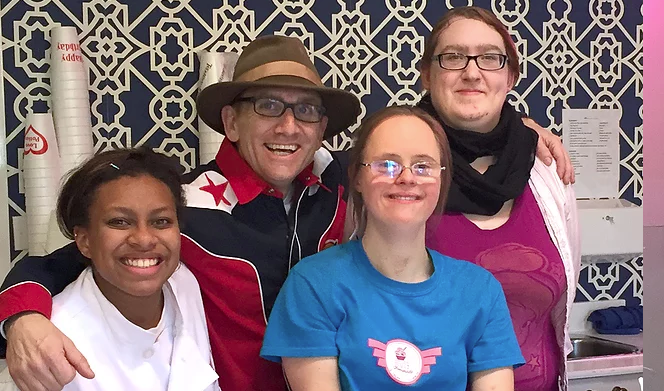
Decades ago, people with intellectual disabilities went to institutions on a regular basis. Life expectancy was short and quality of life was low. In the 1970s, more and more parents refused to allow their children to go to these institutions. Over time, they advocated for their kids to be included in public schools (It is AMAZING how many people, to this day, ask me whether Penny goes to school). Laws changed. Quality of life improved. Life expectancy for people with Down syndrome has more than doubled over the course of my lifetime.
What happens after people with intellectual disabilities finish school? The workplace is the next frontier for people with Down syndrome and other conditions like it. It is really hard for people with intellectual disabilities to find work, and this fact often leads to isolation, depression, and a sense of meaninglessness.
Michael Berube has written a beautiful memoir about his son Jamie, Life as Jamie Knows It, in which he describes his adult son with Down syndrome. Jamie is an interesting, dependable, hardworking young man who loves people and can tell you all sorts of things about art and music. Jamie is unemployed and struggling with depression. Jamie’s story is emblematic of the situation for thousands of others like him.
But there are signs of hope. This 2-minute video tells the story of an ice cream shop in Texas that employs people with intellectual disabilities throughout the store, including in management positions. It highlights some of the advantages of such employment: not one worker has left the company since it began, and these hardworking young people are faithful to the job entrusted to them. They work hard, with good attitudes, and they always show up for their jobs.
Penny is twelve now, and my hope and prayer is that over the course of her lifetime we will see more and more employers recognize that it is good for business to employ people with intellectual disabilities.


